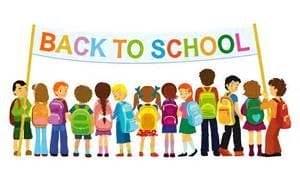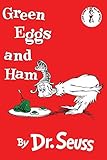All Children Deserve to Be Readers
All Kids DESERVE To Be Readers
by FranBeliefs About Learning Learner Stories (Self-Management} Student Voices
Let Students Lead the Way
by FranStudents Take the Lead
Parent teacher conferences at Wildwood Elementary are actually a time when the teachers do very little talking. Instead, the students run the conferences, informing their parents about how they’re doing, what their goals are going forward, and what kind of learners they are.
See How It’s Done to learn how Wildwood students take ownership of these meetings.
Beliefs About Learning Collaborative Learning Learner Stories (Self-Management}
Two New Links on Learning
by FranThe Learning Journal Via SeeSaw
Sharon Davison and colleagues
https://www.youtube.com/watch?v=SEOISp6Cp68&feature=youtu.be
This article looks at students’ “grit” or determination to learn. It explains how the NAEP will begin to collect student data. Meta-cognition is finally coming to the front! Enjoy! Courtesy of ASCD SmartBrief.
NAEP exam to collect data on “grit” in 2017
Via Darlene’s blog
Beliefs About Learning Collaborative Learning Learner Stories (Self-Management} Learning How to Learn Teacher Suggestions, Stories, Qs Voices and Choices
How Well Do You Know Your Students?
by FranSchool neuroscience unleashes students’ brain power
Districts deploy the science of learning to engage students, close achievement gaps and overcome disabilities By: Matt Zalaznick
http://www.districtadministration.com/article/neuroscience-builds-students-brain-power
An excerpt:
”Educational neuroscience empowers teachers with new insights into how all students learn and holds promise for enhancing special ed, but myths and exaggerations sprouting up around the burgeoning field could lead to children being labeled, which could limit their abilities, experts say.
Recent neuroscience research has debunked some popular modern education concepts but reinforced others as more is understood about how learning changes the brain physically, says Daniel Ansari, a cognitive neuroscientist at The University of Western Ontario and a director of the International Mind, Brain and Education Society.
“The notion of personalized education is consistent with neuroscience, just not in the way we have carved up individual differences—such as visual learner or right- and left-brain learners,” Ansari says. “We need better measures to differentiate learners.”
Beliefs About Learning Foundational Beliefs Learner Stories (Self-Management} Theories of Mind
Students’ Choices
by FranThe ‘most powerful’ classroom innovation — by the $1 million teaching prize winner By Valerie Strauss April 16
http://www.washingtonpost.com/blogs/answer-sheet/wp/2015/04/16/the-most-powerful-classroom-innovation-by-the-1-million-teaching-prize-winner/ A short excerpt:
“Nancie Atwell is the renowned founder of the Center for Teaching and Learning, an award-winning non-profit independent K-12 demonstration school in Edgecomb, Maine, where she teaches seventh- and eighth-grade writing, reading and history….”
“More than anyone we teach, our inexperienced, unenthusiastic readers—our Mikes—need compelling stories, characters they can identify with, vicarious experiences, and pleasure. Give them intriguing introductions to compelling stories and time in school to read them. Give them a community to read in, a healthy collection of books to choose from, and conversations with a teacher who knows the collection, and they will grow into fluent, passionate readers.”
Learner Stories (Self-Management} Teacher Suggestions, Stories, Qs Voices and Choices
Student Voices About Learning
by FranWe shouldn’t wait until high school to ask students about this:
http://www.star-telegram.com/news/local/community/arlington-citizen-journal/article18926862.html
Learner Stories (Self-Management} Metacognition
Checking For Understanding: Start with the Student
by Fran53 Ways to Check…
Published November 11, 2014
http://www.edutopia.org/blog/dipsticks-to-check-for-understanding-todd-finley
A short excerpt:
A Simple Way to Gain Information from Your Students: Ask Them
When preservice teachers are confused as to why their students performed poorly on an assignment, I gently say, “Did you ask them why?” After all, having learners use their own vernacular to articulate why they are stuck can be profoundly useful for identifying where to target support.
According to the American Institute of Nondestructive Testing, the simplest tool to encourage student self-assessment is evaluative prompts:
- How much time and effort did you put into this?
- What do you think your strengths and weaknesses were in this assignment?
- How could you improve your assignment?
- What are the most valuable things you learned from this assignment?
Learner Stories (Self-Management} Learning How to Learn Theories of Mind
Student Choices
by FranStudents choose how to learn
By Dennis Pierce April 7th, 2015
A district offers students 6 instructional models—an approach that has led to zero dropouts
A short excerpt:
“We have implemented a ‘zero dropout’ policy that does not allow students to drop out of our district,” he said. But rather than imprisoning students in front-facing classrooms, the rural Kentucky district is instead trying to entice at-risk, and even low-risk, students to enjoy their education through a series of innovative and distinct learning pathways–informally called “spokes.”
Students in Taylor County can actually choose how they want to learn from among six instructional models, including traditional, online, peer-led, and project-based learning. This highly student-centered approach has resulted in a 100-percent graduation rate within the district over the last few years, say administrators…..”
http://www.eschoolnews.com/2015/04/07/students-choose-learn-063/
Classrooms and Context Learner Stories (Self-Management} Voices and Choices
Here’s One Teacher’s Answer to When….
by Fran
Here’s one teachers view on “when” to teach kids to be metacognitive.
An excerpt
“This year I decided to study formative assessment plans and the use of said plans to help students create and meet learning goals. Thus began my journey of studying and practicing formative assessment plans to help my students create and meet learning goals. The nature of the literacy interventionist is to adjust teaching to meet learners’ needs. That’s just what we do. However, I wasn’t consciously using the information gained to share with my little learners. I was telling them my analysis, and showing them how to do it my way. I never really discussed their learning with them. Until now!….” (Bolding mine)
http://www.adventuresinliteracyland.com/
Classrooms and Context Learner Stories (Self-Management} Lesson Planning
And Still More About Hearing Children’s Voices (about Learning)
by FranPersonalized Learning and Query Books
DECEMBER 11, 2014
Cathy Knutson An excerpt
“My interest in personalized learning and Genius Hour began changing how I worked with students, as I created opportunities for them to choose the way they demonstrate their learning, and provided choices for collaboration. I focused them on creating and sharing with their own voice.
An obstacle became immediately apparent as students began to direct their own learning. When allowed to choose which interests to pursue, many of my students didn’t know where to begin! They were not accustomed to this responsibility and didn’t consider their own ideas to be as valuable as those provided by others.
“They were not accustomed to this responsibility and didn’t consider their own ideas to be as valuable as those provided by others. Many struggled with the act of being curious or with pondering their own questions. They simply hadn’t given it much thought and couldn’t just flip a switch for instant illumination. As fourth and fifth grade students, they were used to adults telling them what to do rather than asking them to pursue their own ideas and interests — especially in an educational setting. They needed extra time to focus on and mull over their options. You cannot develop passion projects if you have no passion or haven’t really considered what those passions are. They had to first think through what piqued their interest. What would they like to know more about? What everyday problems have they noticed that need solutions? If they had never thought about it, they needed to reexamine their world with their eyes open to problems and their minds eager to find solutions.”
http://www.edutopia.org/blog/personalized-learning-and-query-books-cathy-knutson
Learner Stories (Self-Management} Learning How to Learn Lesson Planning Uncategorized Voices and Choices









